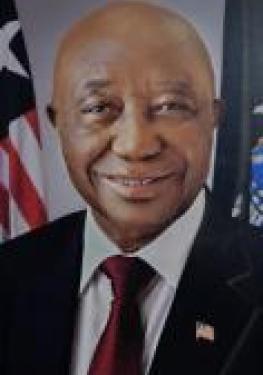
Authorities of the Environmental Protection Agency of Liberia (EPA) on Friday January 10, 2020 certificated over 100 newly trained environmental inspectors inclusive of some EPA staff, who jointly completed a two-week specialized environmental training course.
The training, which covered several topics including environmental inspection, monitoring, water quality testing and environmental reporting was bankrolled by the Green Climate Fund (GCF) through United Nations Development (UNDP).
The last training for environmental inspectors was done nine years ago in 2011. Since then, the numbers of inspectors dropped drastically from 87 to 37, hence need for additional inspectors was essential amid the level of environmental violations and degradations taking place across the country.
Speaking at the certification program held at Corina Hotel in Sinkor, EPA Executive Director, Dr. Nathaniel T. Blama, Sr. congratulated the newly trained inspectors and said they are among the best the country has.
He disclosed that the trainees were among 3,500 people who applied when positions for environmental inspectors were advertised by the EPA about a year ago.
Dr. Blama revealed that the training was a specialized course “this is why some EPA staff, some of whom who already have masters and terminal degrees in environmental science benefited from the training”.
He indicated that the training was necessary, because having a master degree in environmental science doesn’t qualify you as an environmental inspector.
“You have to do this training and get certified to qualify one as an environmental inspector. This training takes you to another level,” Dr. Blama said.
The EPA, he divulged, is not currently in the position to employ all the newly trained inspectors due to financial constrain.
“We are trying to lobby with government to give us money so we can employ majority of you. We will not be able to employ all at once”, Dr. Blama said.
However, he encouraged them to take advantage of employment opportunities at other institutions, since they have received the necessary training that puts them in the pool of technicians.
Dr. Blama assured that there will be a follow-up training by the end of February and noted that the sequel training will be among the newly trained inspectors and environmental inspectors.
The pending training would focus mostly on field work and is intended to help the newly trained inspectors understand environmental monitoring techniques and skills.
The EPA Boss asked the newly trained inspectors to keep their integrities, thoroughly read and master the Environmental Protection and Management Law of Liberia (EMPL) and the Act that created the agency.
Also speaking, Moses Massah, head of Energy and Environment at UNDP lauded the EPA for its commitment to sustainable development in Liberia over the years.
He said that the current environment and climate change challenges in Liberia including deforestation of tropical rainforest, the hunting of endangered species for bush meat, the pollution of rivers and coastal waters from industrial run-off and raw sewage, the burning and dumping of household waste, coastal erosion and flooding, change in temperature and rainfall patterns amongst others demand that the EPA and the country at large is adequately capacitated to address the issues.
Mr. Massah disclosed that a stock-taking exercise conducted by the UNDP in partnership with the EPA in 2015, as the National Adaptation Plan (NAP) process was being formulated, was recognized that there was a limited capacity within the country to support sustainable management of the environment.
He however challenged the new corps of trainees to support the EPA and UNDP joint efforts in improving environmental compliance and reporting on environmental issues at the sector level and within the private sector, ensuring that environment and climate change issues are mainstreamed at the sector level and improving coordination and cooperation between the EPA and other government entities.



